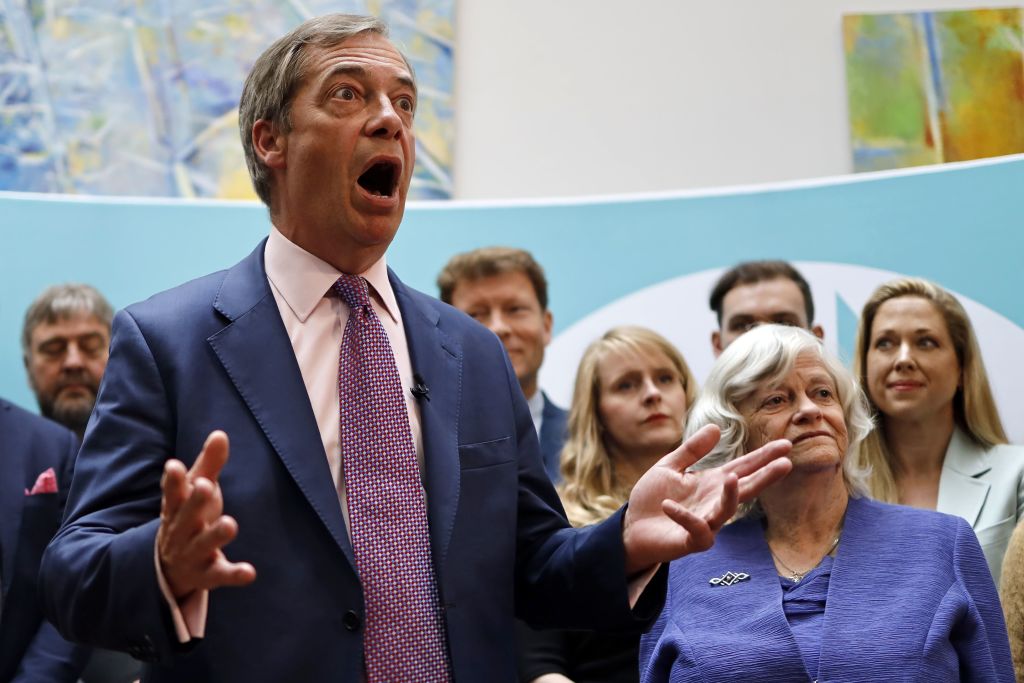You have to admit that Brexit party MEPs have a fun job. Imagine turning up to work to insult your colleagues, ridicule your duties and still collect a pay cheque. As I am fortunate enough to enjoy my work, though, I don’t think it is jealousy that makes me find at least some of their posturing obnoxious. “Every day MEPs get a “media briefing” from the EU,” Martin Daubney MEP informs us:
No, in fact. If anything, the EU is offering evidence against bias. First, these words came not from an EU employee but British philosopher John Gray. Second, Gray does not call Brexit “far right” and specifically criticises the idea that it was an “isolated eruption of English nationalism.” Third, Gray does not compare Farage and Mussolini or even discuss them in the same breath. In other words, Daubney’s post is wrong.
This is not the most significant political mistake, but it is symptomatic of Brexit party strategy. Here, the EU was giving Daubney a chance to listen to one of Britain’s leading political philosophers – one who has often been quite favourable to Leave – discussing the events around which the Brexit party was established.
Instead of being intellectually curious, though, Daubney misread the briefing and took the chance to grandstand on social media, where his ludicrous complaint has been retweeted several hundred times.
What Daubney might have found of special interest in Gray’s piece – a talk, delivered on BBC Radio 4 – was his claim that a “no deal” Brexit would mean the end of the Brexit party and Britain’s populist surge. This, Gray suggests, is a kind of paradox: the most radical outcome of Brexit would minimise radicalism.
Is Gray correct? I doubt it. I think it is true that if Britain leaves with a deal, impassioned Brexiteers will remain on their hobby horse, though with, I suspect significantly less support.
But if Britain leaves without a deal, the grounds for populism might, if anything, be more fertile. The grievances that have driven the rise of the Brexit party are grievances with the establishment at large – concentrated, out of convenience, onto the EU.
There is no doubt that Brexiteers are heartened to see Boris Johnson as Prime Minister, but how long will they feel contented with the technocratic liberalism of a Johnson-led, Cummings-masterminded Government?
When Brits realise that prices are still too high, that the NHS is no more efficient, that our political system is still full of grubby frauds and that our newspapers still seethe with stories of violent crime, people are going to feel rather less than satisfied, and that is even without factoring in a very plausible economic downturn. Nigel Farage has been smart enough to grasp this. He said recently that Brexit is “the beginning” and that Britain is in need of a “political revolution”. He left, though, gaping ambiguity over the question of what kind of revolution it needs. A quick glance at the Brexiteer, a new publication from the Brexit party, reveals a lot of vague sabre-rattling and fewer specific promises, like offering free Wi-Fi on every train and bus outside London. Is it churlish to suggest that finding a way to reduce ticket fees might be more welcome? The Brexit party was well-placed to pick up single-issue protest votes but it is rather less well-suited to campaigning on a broad platform. Its notable members, after all, range from traditionalists to people who are so culturally libertarian that they think watching child porn should not be banned. It describes itself as a classically liberal party that seeks to diminish the role of the state but also talks a big game about investing in the provinces. It is, in other words, a pressure group with vague pretensions towards being a party. Brexit party MEPs have struggled to remain consistent even within their very limited mandate. Claire Fox MEP attacked the EU in the European parliament both for condemning Matteo Salvini’s immigration restrictionism and for constructing “Fortress Europe”. Thus, she managed to sound like both a supporter and opponent of mass immigration from North Africa. One can only keep such balancing acts up for so long. As much as Brexit party MEPs constantly advertise their horror at the bloated rituals and alien formalities of the EU then, this might be the most fun and least stressful part of their careers. It is trivially easy to draw attention to the lavish dinners of EU managerialists or the slightly silly shuffling between Brussels and Strasbourg. It will be far more difficult to unite around plans for the future state of Britain, when the people stop retweeting and start complaining.





Comments